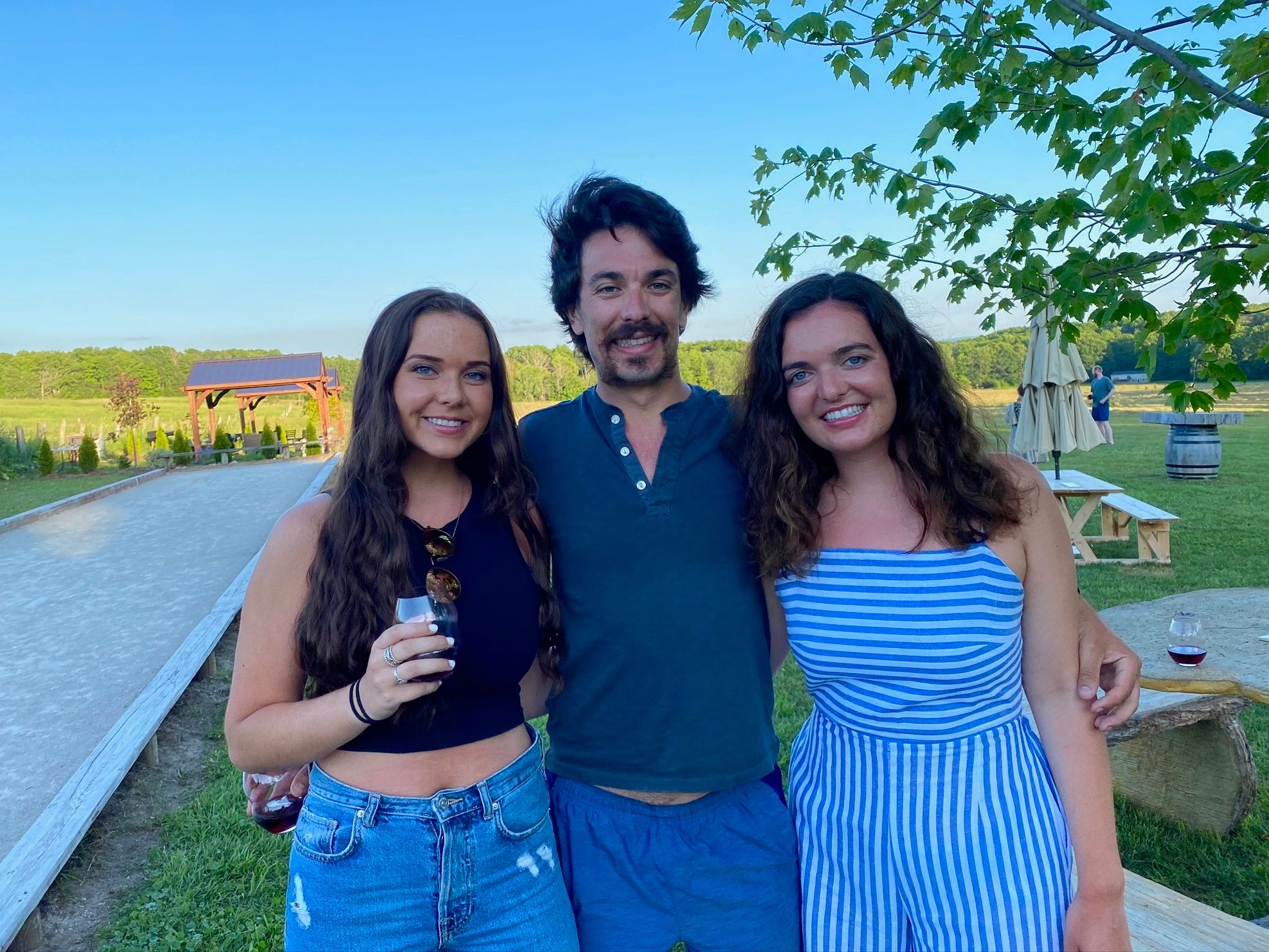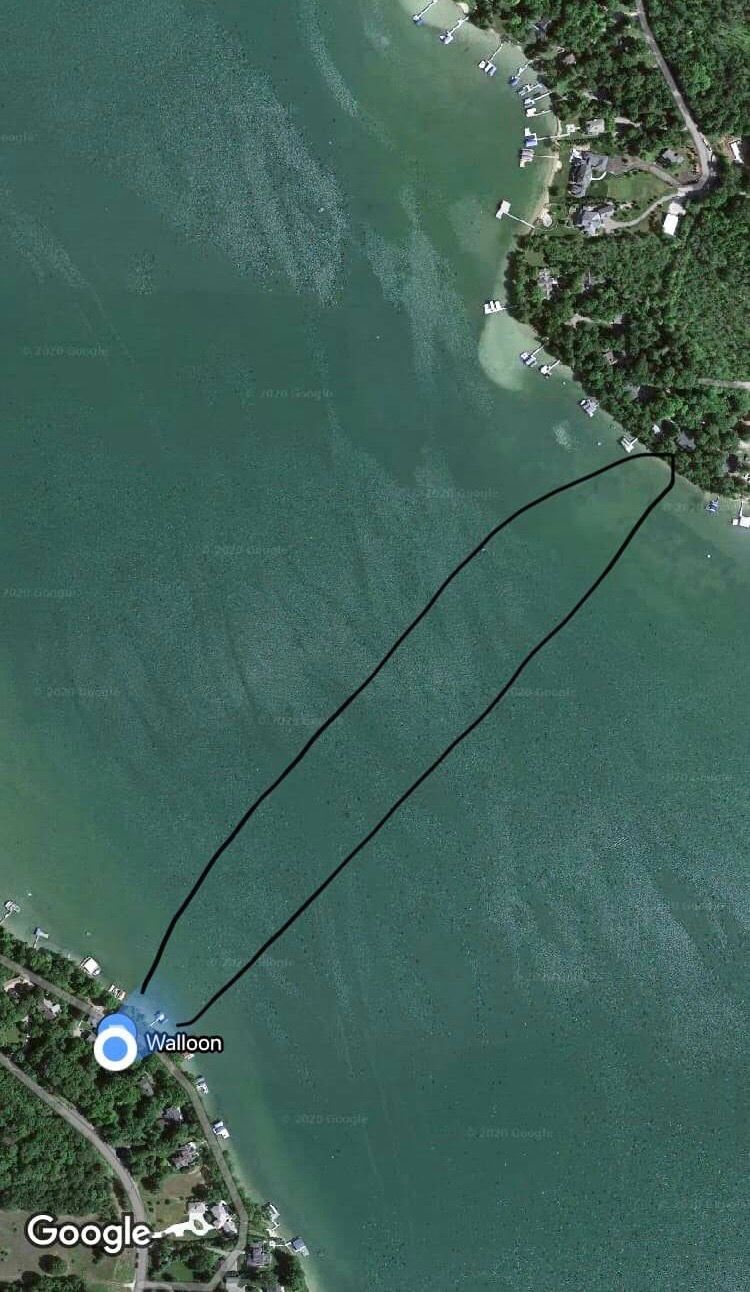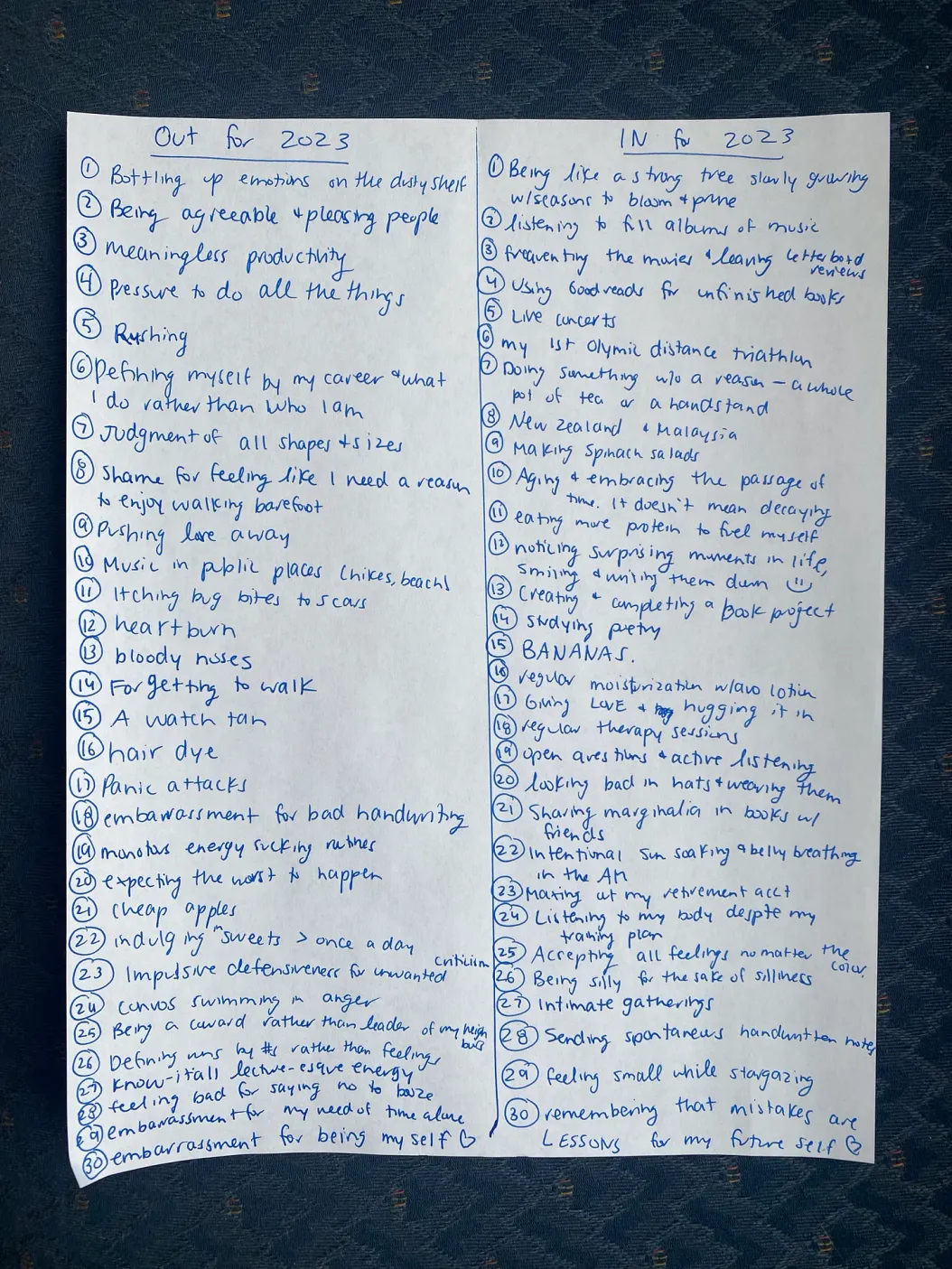Hello fellow learner,
Greetings from Petoskey, Michigan.
This past week I swam across Walloon Lake in northern Michigan with my dad. We tracked it to come out to a mile in distance there and back. Here's a picture of the lake at sunrise:

Open water swimming is not my cup of tea or my dad's, so our route was not the most linear. The biggest differences are that there's no stripe on the bottom to help guide like in a pool, and the waves cause even more turbulence. Despite the seaweed, lack of vision underwater, and fear of seeing a fish, I really enjoyed the swim! Not much is comparable to the feeling of getting out after a refreshing dip.
Now, let’s dive into letter 15 from a learn-it-all. Enjoy!
Some things I’ve learned through…
🗓 Doing
I reflected on the happy halfway of 2020! It definitely has not gone to plan, but I have spent some time looking back on these last six months and coming to terms with what I've achieved and what is yet to come. Some highlights include:
- Sending out these weekly letters and publishing articles for past 15 consecutive weeks
- Independent pursuits: playing piano, my (work in progress) meditation habit, 376 journal entries (188 days journaling each morning and night), and running for the sake of it and actually enjoying it
- Some more social hobbies: Barbqueing with my dad, painting with my cousin, baking with my sister, road biking with my brother, gardening with my mom, bonfires with friends, and walking dogs with my family
- Lastly, I have a tremendous sense of gratitude to have a family and home that have supported me so far this year. I've loved spending birthdays and holidays with my family. Here are my siblings and me this past weekend over the 4th of July:

🌟 Quote to inspire
"Plans are worthless, but planning is everything. There is a very great distinction because when you are planning for an emergency you must start with this one thing: the very definition of 'emergency' is that it is unexpected, therefore it is not going to happen the way you are planning." -- Dwight D. Eisenhower
🖊 Writing
I wrote a letter to a struggling college student. Back in school, we all think of success as being a high grade-point average, but that singular way to define success does not have to be the only one. It is implicit in its system but we can empower ourselves to redefine it. Don’t let the GPA and being a less than stellar student define who you are.
🎧 Listening
I listened to why authenticity is a double-edged sword podcast with organizational psychologist Adam Grant. I stumbled upon it coincidentally after not having a good answer to a friend who asked me how far I’d wear my authentic self all the time. Some key lessons are that:
- Authenticity without boundaries is careless. Humanize yourself by showing vulnerability, but be careful that the vulnerability you choose to show doesn't cast doubt on your competence.
- Authenticity without empathy is selfish. It is not an excuse for disrespectful and being inconsiderate of other's values. Don't think of it as being all about me, others need to be part of the equation too.
- Authenticity without status and trust is risky. If you are a minority in an organization, you are already seen as a rebel and need to build up your reputation as someone committed to the mission. Before challenging the status quo, it is helpful to demonstrate loyalty first by proving value. With idiosyncrasy credit, you wield the power to deviate from conformity.
📖 Reading
I read the War of Art by Steven Pressfield. It's full of advice on how to focus on your (creative) work and get more done by overcoming the villain of Resistance. Pressfield personifies it as the combination of the rationale and egotistical voice in your head that creates shame and fear. It keeps us from becoming who we were born to be.
On why fear is good:
Like self-doubt, fear is an indicator. Fear tells us what we have to do...The professional tackles the project that will make him stretch. He takes on the assignment that will bear him into uncharted waters, compel him to explore unconscious parts of himself.
On love:
If you don't love the project that is terrifying you, you wouldn't feel anything. The opposite of love isn't hate; it's indifference.
Technically, the professional take money... But in the end, he does it for love.
On how professionals focus on the process and not the outcome of success:
Grandiose fantasies are a symptom of Resistance. They're the sign of an amateur. The professional learned that success, like happiness, comes as a by-product of work. The professional concentrates on the work and allows rewards to come or not come, whatever they like.
He understands that the field alters every day. His goal is not victory (success will come by itself when it wants to) but to handle himself, his insides, as sturdily and steadily as he can.
Failure and success should not be taken personally. We all have fears ingrained in our biology and need criticism to grow and evolve. But we cannot give it too much power, because we already have the voice of Resistance in our head that can crack us if it gets too strong.
The professional cannot let himself take humiliation personally. Humiliation, like rejection and criticism, is the external reflection of internal resistance
On the authentic self:
None of us are born as passive generic blobs waiting for the world to stamp its imprint on us. Instead, we show up possessing already a highly refined and individual soul... We're not born with unlimited choices. We come into this world with a specific, personal destiny. We have a job to do, a calling to enact, a self to become. Our job in this lifetime is not to shape ourselves into some ideal we imagine we ought to be but to find out who we already are and become it.
🚸 Word to define
Amateur: roots from Latin meaning "to love". It is a person who is incompetent or inept at a particular activity; a person who engages in a pursuit, especially a sport, on an unpaid rather than a professional basis. According to Pressfield:
First, he doesn't show up every day. Two, he doesn't show up no matter what. Three, he doesn't stay on the job all day. He is not committed over the long haul; the stakes for him are illusory and fake. He does not get money. And he over-identifies with his art. He does not have a sense of humor about failure... The amateur has not mastered the technique of his art. Nor does he expose himself to judgment in the real world.
💭 Question to ponder
What critical moments have shaped your life's map and its journey?
I appreciate you reading this! If any of the ideas resonated or you have feedback to improve, feel free to leave a comment, replying to this email, or sending me a message on Twitter @JenVermet.
Never stop learning 😁
Until next week,
Jen
P.S. if you're interested in what the bird's eye view of my swim looked like:

If you’re reading this because someone shared this newsletter with you or you clicked a link somewhere, welcome! I’d love it if you subscribed below to receive future updates:

